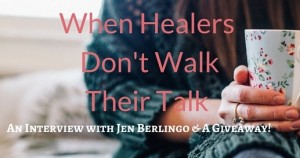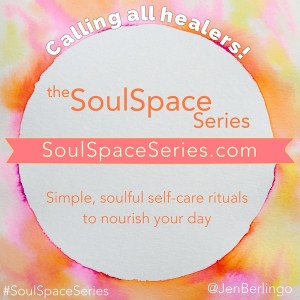Saying goodbye to someone we care about is difficult, and it's never, ever perfect. As a culture (or maybe as a species,) we're just not that good at it because it doesn't feel great, and we're pleasure-seekers by nature. We all handle goodbyes differently, in ways that might have been modeled for us by early caregivers or ways relationships may have ended without our having a choice in the matter. Almost all of us have some degree of woundedness around goodbyes, whether they've left us with feelings of abandonment, anger, confusion, and/or grief. So when we say goodbye as adults, we might protect ourselves (often our younger child selves) in subtle ways that are not entirely conscious. We may belittle the meaningfulness of the relationship, skip over or avoid the goodbye by ghosting, say a breezy or empty goodbye because our true vulnerability is too difficult to show (or may be unsafe to show, in some cases.) We may be in denial of the goodbye, using a "see you later" mentality even when we won't actually see them later. We might linger, delay, or hold on in small ways so the goodbye isn't final. We might focus on unpleasant memories of the relationship, place blame, express anger, or unconsciously need to make the other person 'wrong' so we can emotionally withdraw so the ending doesn't hurt as much. We might drop a bomb (aka - big piece of news or big new emotion) at the end of a relationship on our way out the door so there isn't time to process it together. We might feel all of our real goodbye feels, but avoid eye contact or even the in-person parting. Some of us prefer to write a heartfelt letter to express our feelings about the ending. We may put the other person on a pedestal of admiration or shower them with compliments or gifts when parting. These are just a few examples of the limitless ways many of us defend against the pain of parting.
Let me be clear: None of these behaviors are "bad" or "wrong" -- it's just how we human beings self-soothe around something really, really hard on our hearts. They are all brilliant adaptive strategies we've learned and practiced in order to cope with something difficult, unpleasant, raw, or sometimes threatening. Whichever strategy you've used in past relationship endings, it is okay because it has served and protected a vulnerable part of you -- likely a younger part. Honor your inner wisdom around it, while also examining it to see if you still want and need to do goodbyes in the way you have historically.
As a therapist, goodbyes are something I think about a lot, because therapists tend to experience them a lot when it is time to end with a client. Our goodbyes ethically and legally need to be complete closure of the relationship. In the field of therapy, a goodbye between a client and a therapist is called "termination," though many shudder at that term, mostly due to the connotation around death. (Death is another type of goodbye our culture still has a hard time talking about, but that's another blog topic for another day.) Therapists aim say goodbye to our clients intentionally, and model what a healthy, conscious, authentic goodbye can look like. As therapists, we sign up to hold space for and honor whatever emotions, defenses, or projections (mostly unconscious) the goodbye brings up within each client - each scenario so unique and uncharted.
Therapy is a microcosm for how a person does their life outside the therapy room, as well as a safe rehearsal-ground for what might be possible in future moments outside therapy. In the spirit of personal growth and rehearsing new ways of being, when a relationship between a therapist and client comes to an end, therapists can invite clients to engage in an ending experience that hopefully feels honoring and real - even if this way of being feels new, weird, and perhaps pushes against a growing edge.
Sure, even the most intentional, conscious, healthy goodbye can still create a degree of longing, awkwardness, sadness, discomfort, or disappointment. That goes for both sides -- therapist and client -- because we're all human and sensitive and evolving. The difference is that therapy (and the ending of it) is in service of the client, and it is the therapist's job to process our own issues, in our own healing space and time, around endings and perhaps around the personal impact of what we're being asked hold in the service of each client. This is why self-care for healers is an ethical imperative. Even when co-creating a conscious goodbye experience in therapy, old habits may still play out, perhaps depending on a person's degree of readiness for change or the degree of woundedness around endings. In my therapist and human heart, I genuinely welcome and meet this with deep empathy, and I express it when given the opportunity. Growth can be so clunky and beautifully human for all of us, and we're all here to help each other grow. When closure is done with presence, authenticity, gratitude, vulnerability, intention, openness, and even ritual and celebration, goodbyes can be tremendously healing.
The next time you are putting closure to a relationship of any kind, it's an opportunity to engage in a conscious goodbye, whether you have always done so, or whether you just wish to do it differently this time. At the very least, it's a chance to explore your relationship to "goodbye" and what your mode of operation has been around endings. To be authentic and frank in expressing your feelings when parting ways, and honoring the shared time and space of a relationship, is healing to the heart.
















